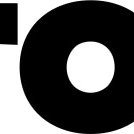Democratic presidential nominee Vice President Kamala Harris and Republican candidate former President Donald Trump agree on at least one thing: they both want to eliminate taxes on tips. While that sounds great to many workers who benefit from tips, financial experts say it could actually end up costing billions.
According to the public media outlet Marketplace, 2.5% of the U.S. labor force earns money from tips, but 1 in 3 make an income so low, it’s already not taxed.
Here’s where the issue arises. Let’s say two people work at a restaurant, but Person A is a hostess and Person B is a server. Both make about $30,000 a year, however, for Person B, a chunk of that comes from tips, while it doesn’t for Person A.
That means come tax time, Person A is stuck paying more in taxes than Person B even though they make the same amount of money.
The federal minimum wage for tipped workers is $2.13 per hour, but workers must make at least the federal hourly minimum wage of $7.25 once tips are included or their employers must cover the difference. Many states and municipalities have higher minimum wages and minimum tipped wages than the federal standard, while some states have eliminated lower minimum wages for tipped workers altogether.
The Tax Foundation, a research think tank, estimates eliminating taxes on tips could actually end up costing more than $100 billion in tax revenue over the span of 10 years.
And depending on how the tax cut is structured, economists on both sides of the aisle warn that the loss could pile onto federal deficit, negatively impact Social Security and Medicare, and open a loophole for high-end earners like financiers to recategorize their income to shield it from taxes.



















































































